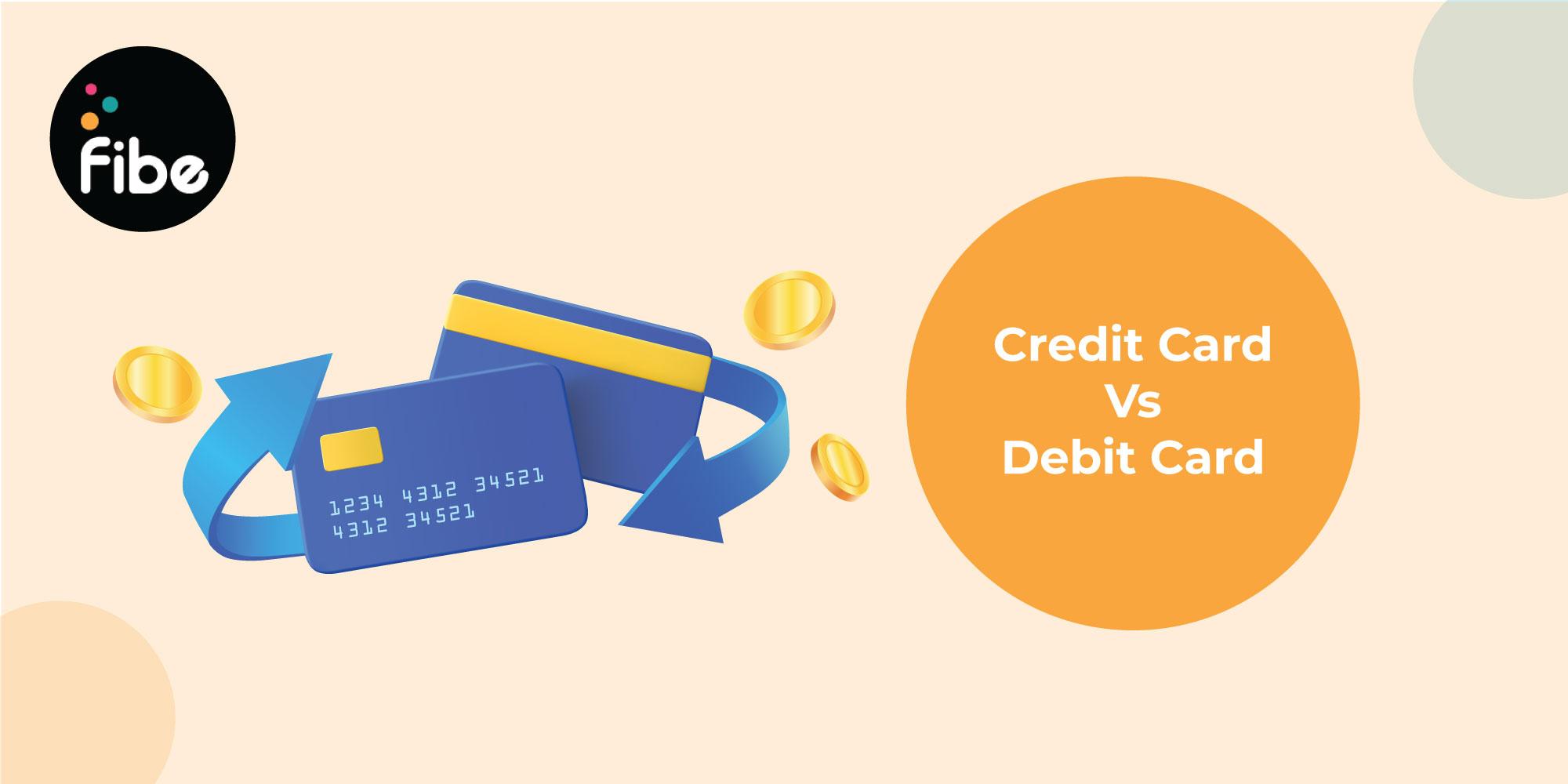- Home
- Blogs
- Credit Card
- Credit Card Vs Debit Card
Debit Card vs Credit Card: Differences Explained
Reviewed by: Fibe Research Team
- Updated on: 9 Dec 2024
Reviewed by: Fibe Research Team

Keeping credit card and debit card differences in mind can help you choose your preferred option to achieve your financial objectives. As two of the popular modes of payment, these cards simplify your shopping experience by avoiding the risk of carrying cash. Both cards share some common features, while their key benefits vary vastly.
Choosing the right option can be helpful in managing your financial requirements. If you understand the specific differences between these cards, you can apply for your preferred one. Read on to understand the benefits of each.
A debit card is a complimentary card that you can use to withdraw money from an ATM or use to buy goods or services. With each transaction, money is deducted from your account. That said, here are some features to note:
no need to apply for it
To get this card, you must send an application to your preferred issuer. It may approve your application based on your credit profile and its policies. Here are some other features you should know:
Check out some key differences between credit cards and debit cards listed in detail below.
| Parameter | Credit Card | Debit Card |
|---|---|---|
| Interest Charges | You borrow from the issuer. Thus, an interest applies if you do not pay the bill by the due date. Delaying payments will also attract a late payment fee. | Transactions are interest-free, as you use the funds directly from your bank account. |
| Cash Withdrawals | If you use it to get cash, you will have to pay a high fee. This charge depends on the issuer’s policies and the amount you withdraw. Moreover, it has a limit on how much you can withdraw as cash. | It allows you to access cash with ease at any ATM. The fees that apply are minimal. |
| Credit Score | Your repayment behaviour and credit card management can improve or damage your credit score. | Debit card transactions do not affect your credit score. |
| Annual Charges | You need to pay a renewal fee for most cards. Some issuers may waive these charges if you meet the transaction milestones. | You typically pay nominal annual maintenance charges. |
| Spending Limit | You get a limit based on your credit profile and the issuer’s policy. If you need additional funds, you can also request the issuer to increase your limit. | Debit cards have a spending limit of up to your account balance. Your account needs to have money for you to use this card. |
To access funds from your current, savings or salary account, you need a debit card. On the other hand, if you see that the funds you are willing to use are not sufficient or not available at the time, you can choose a credit card to transact instantly and later repay the borrowed money.
Now that you know what the main credit card and debit card difference is, ensure that you choose the ideal option. Having both cards in your wallet can help you manage your finances easily. Opt for the Fibe Axis Bank Credit Card and enjoy a plethora of benefits.
From up to 3% cashback to fuel surcharge waivers and complimentary domestic airport lounge access, this card helps you upgrade your life. Download the Fibe Instant Cash Loan App or register on our website to apply now.
A debit card accompanies a bank account, where the amount debited is taken from in the account. A credit card is an independent product allowing you to utilise funds from the sanctioned limit, which you need to repay later.
You can analyse if your card is a credit or a debit card as this is mentioned on the front of the card. In the case of a credit card, you need to repay the amount spent. With a debit card, you can withdraw funds directly from your bank account.
The better option between them depends on your financial habits and requirements. The following differences can help you choose the right one.
An ATM card is a debit card that gives you easy access to cash, which can be used only at the ATM. However, you can use a credit card and a debit card to make direct transactions or get cash from an ATM.
Yes. You can withdraw money from the sanctioned and available limit.
Yes. To meet your urgent financial requirements, some bank’s debit cards offer an overdraft. This gives you surplus funds when you don’t have a sufficient account balance and attracts interest, similar to a credit card.